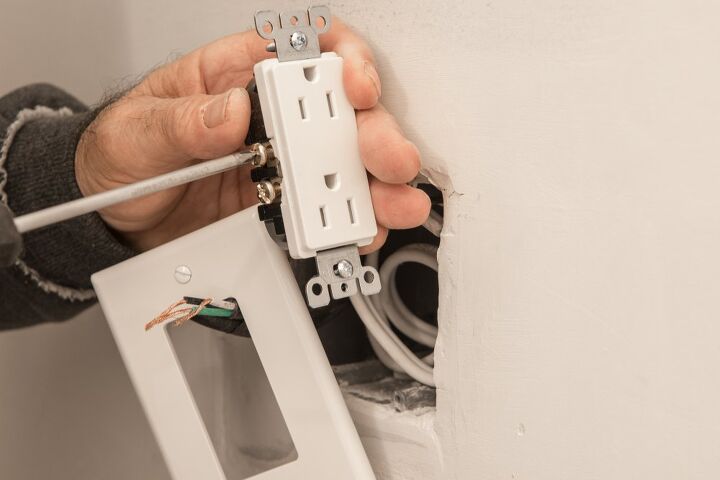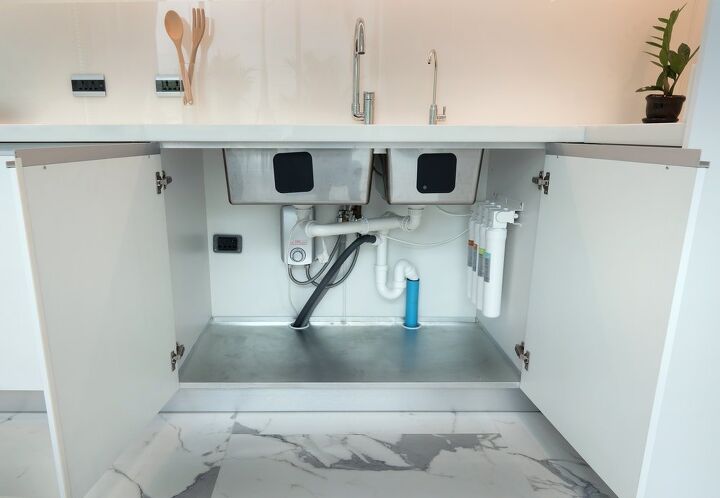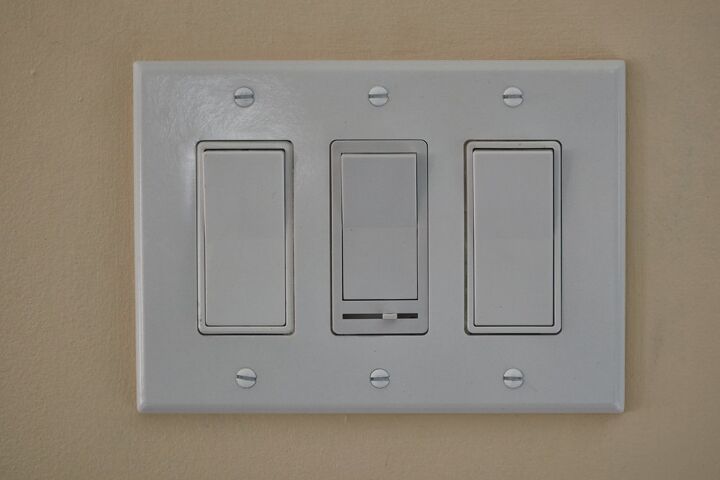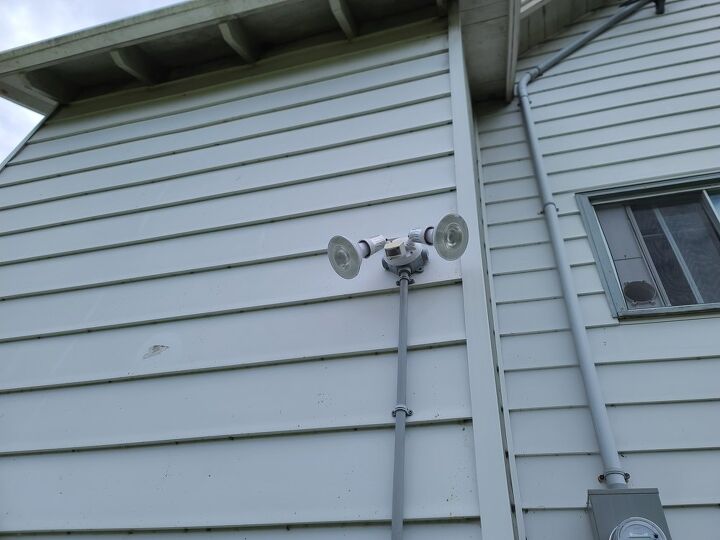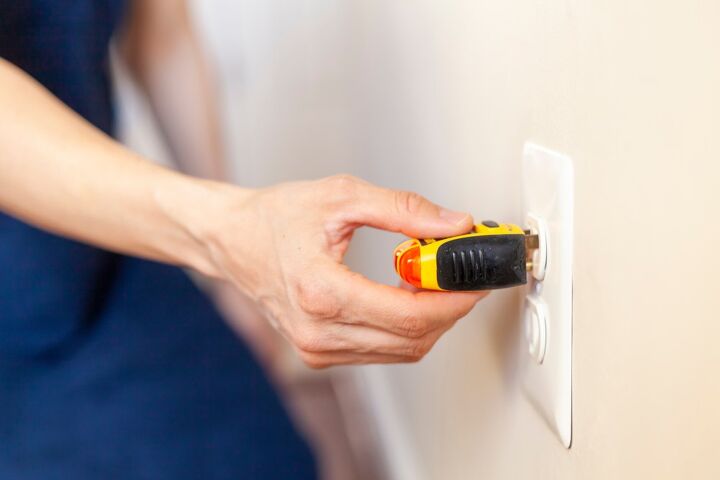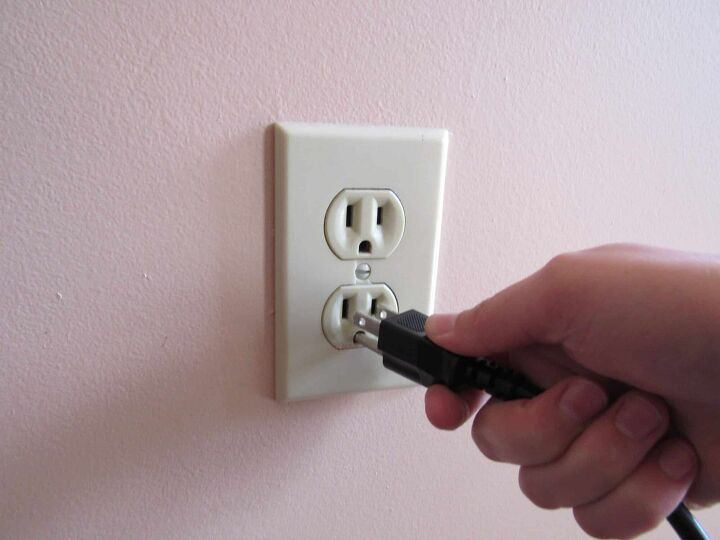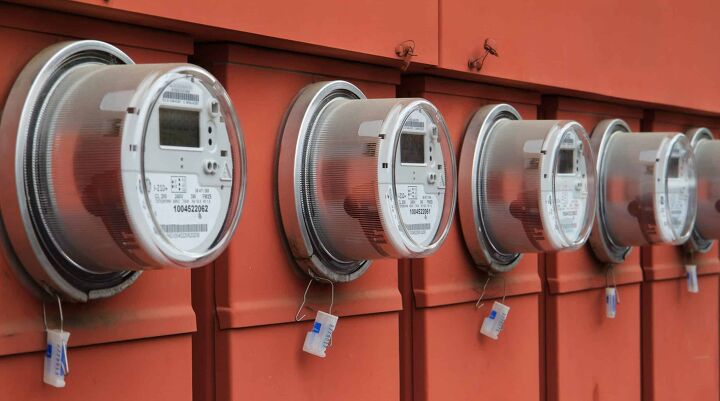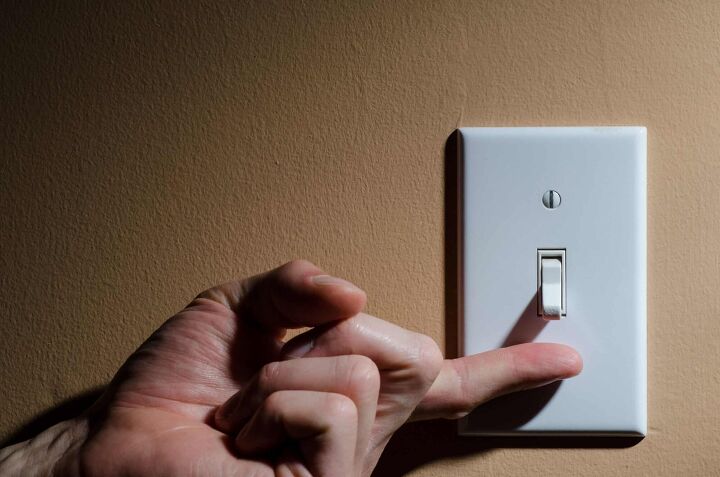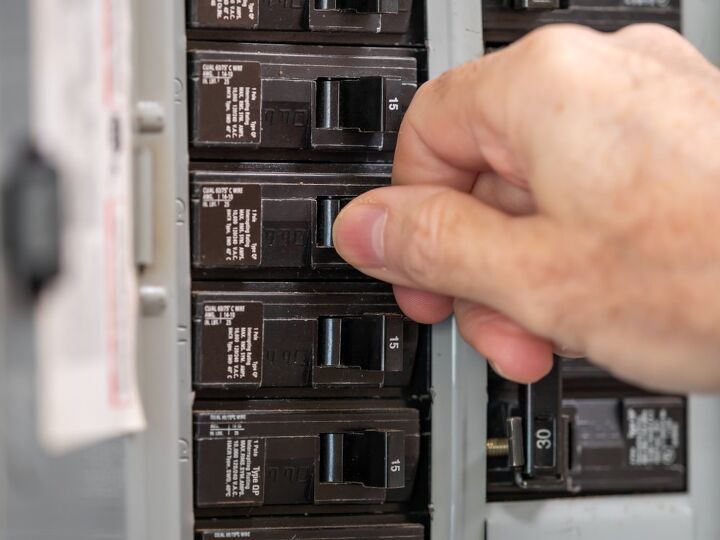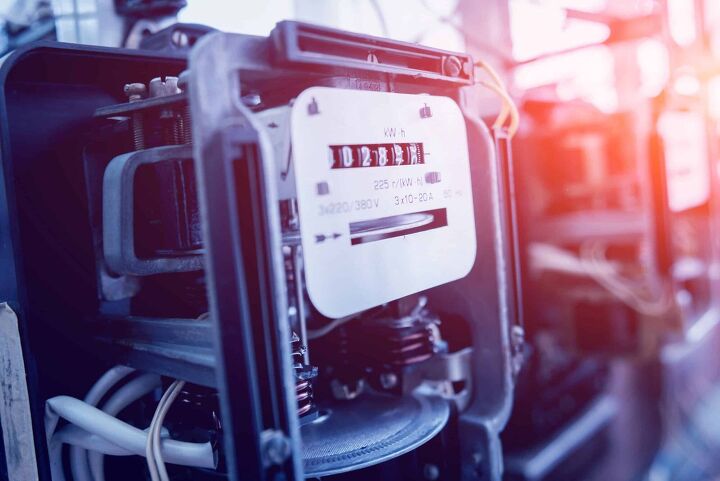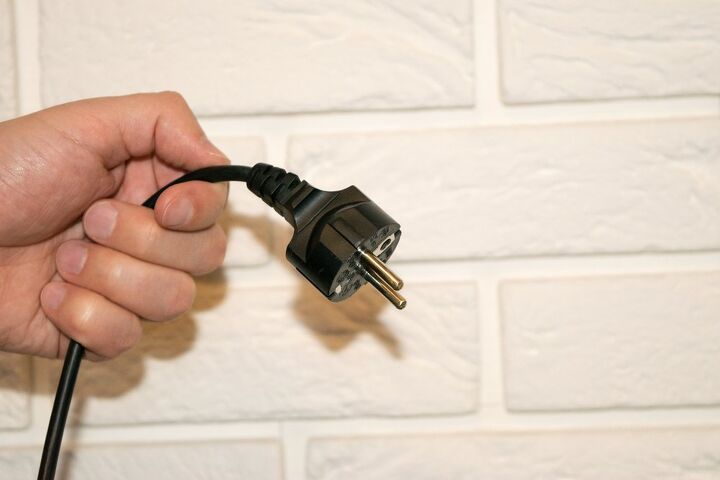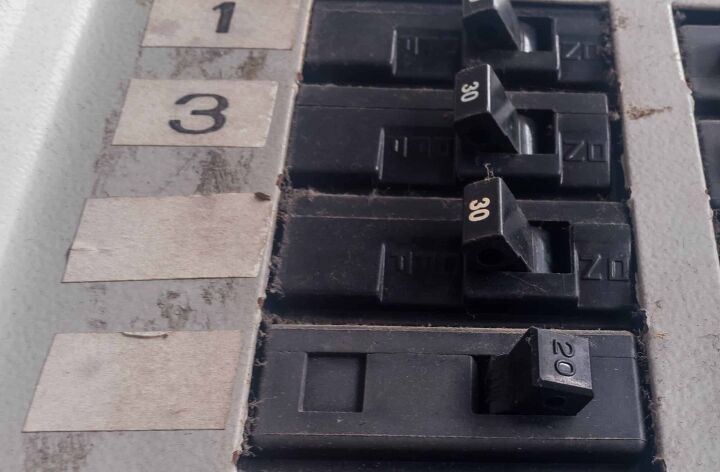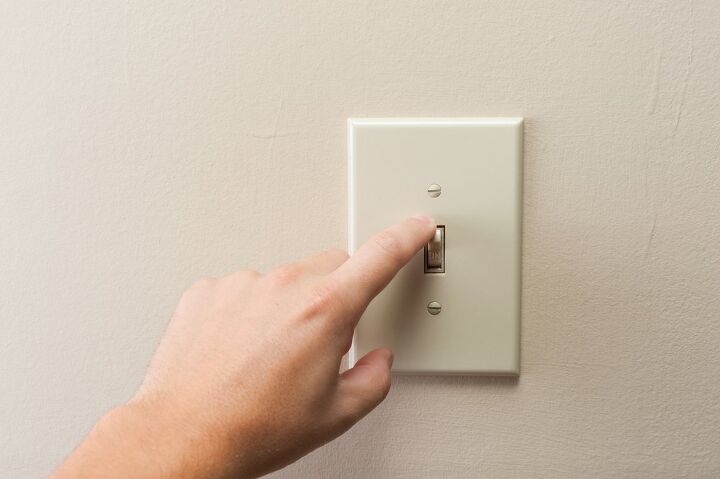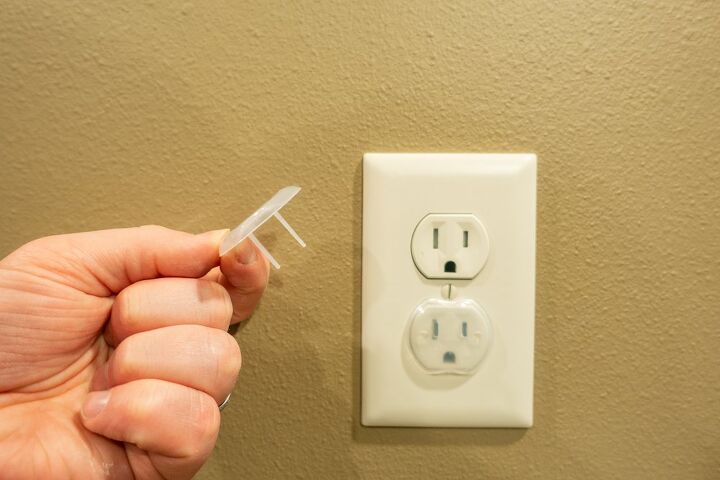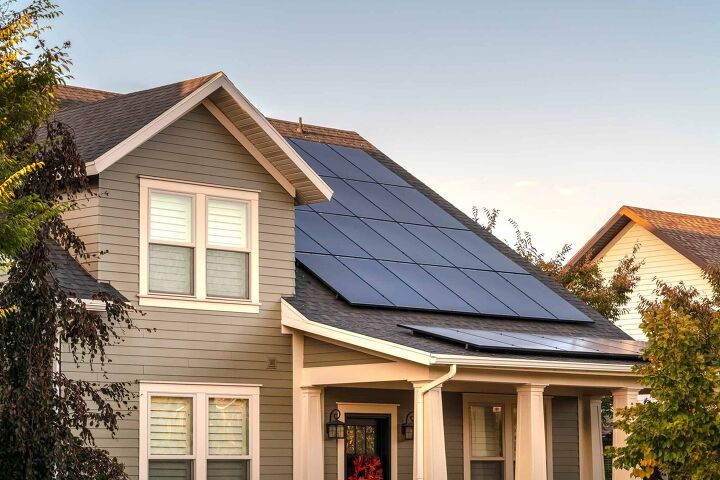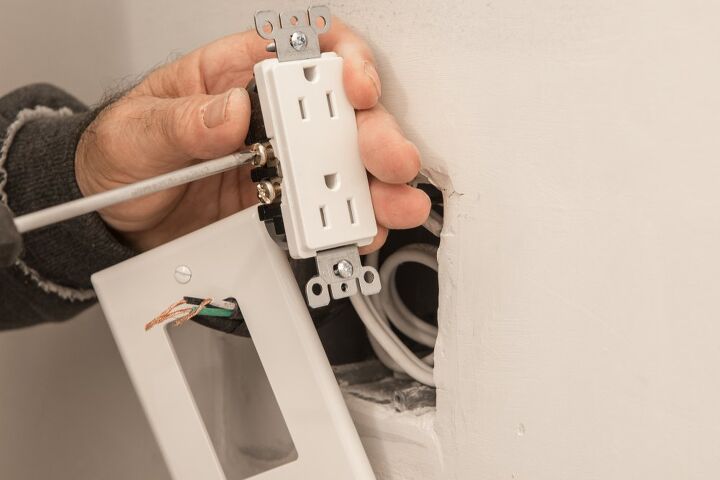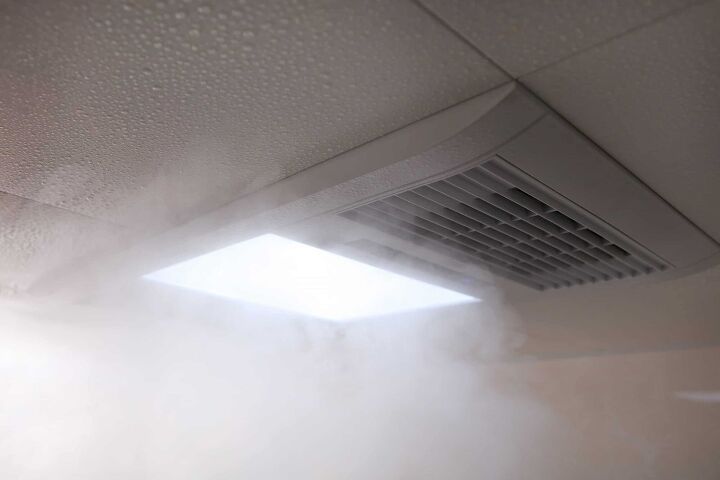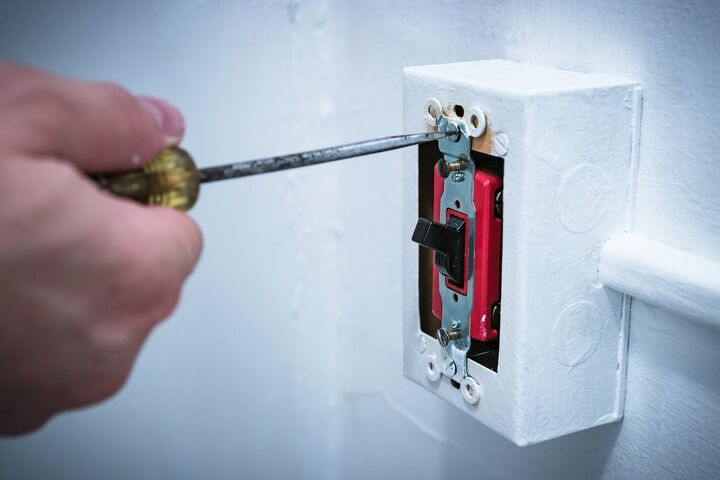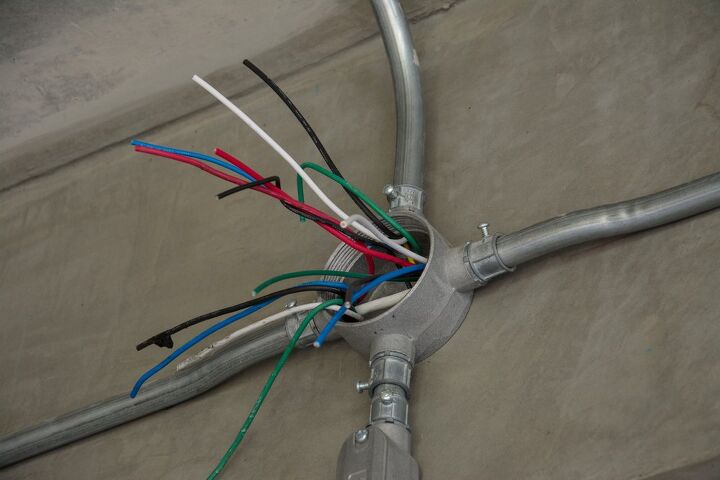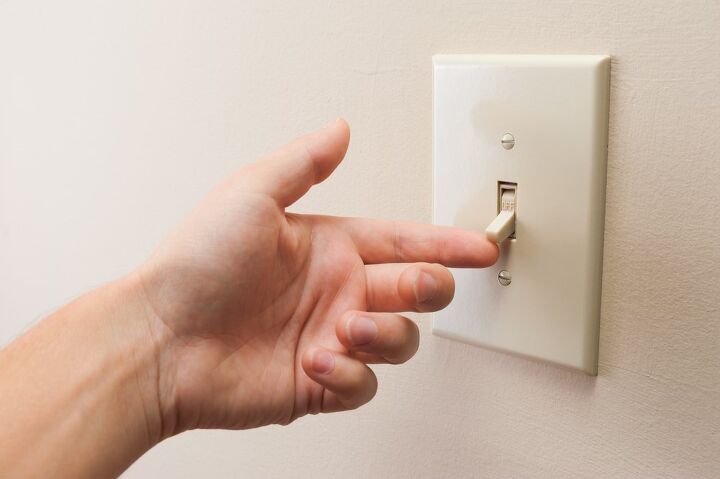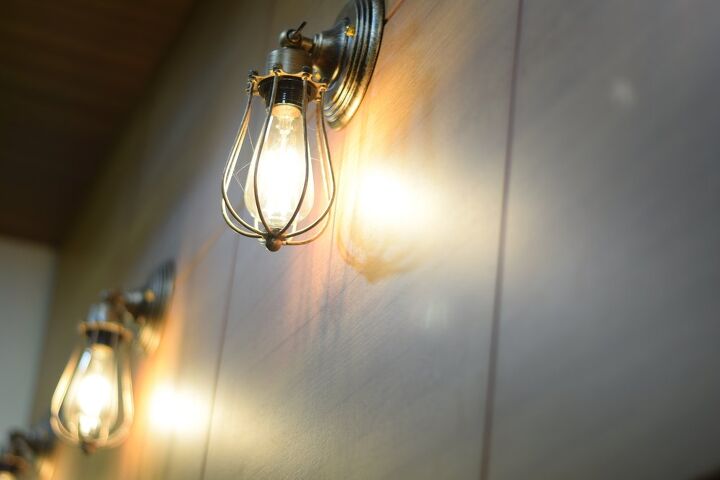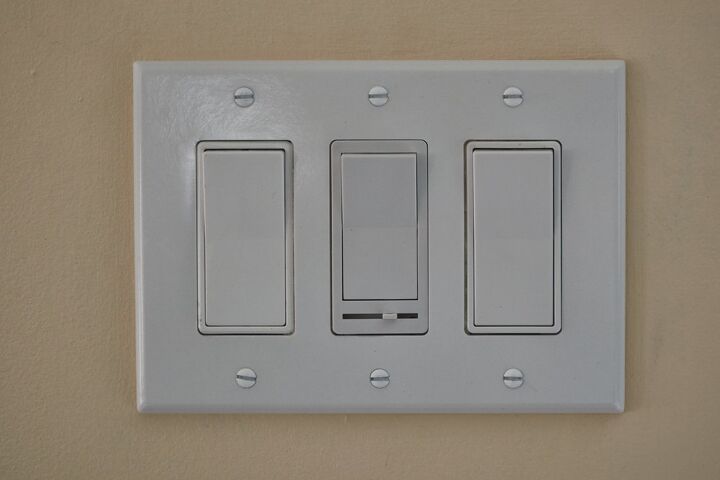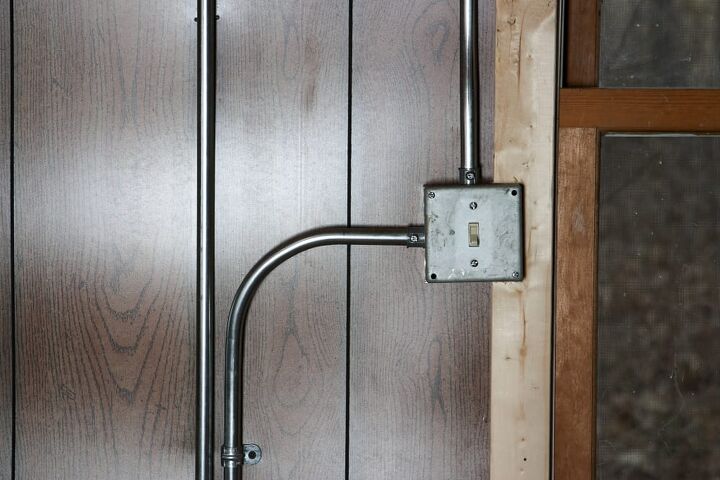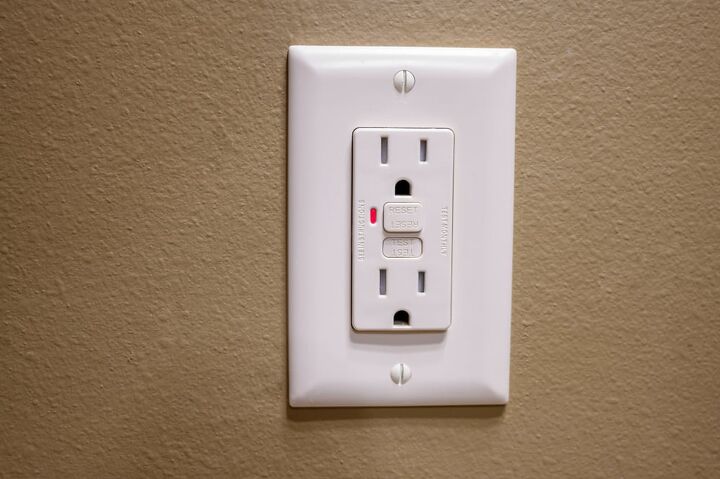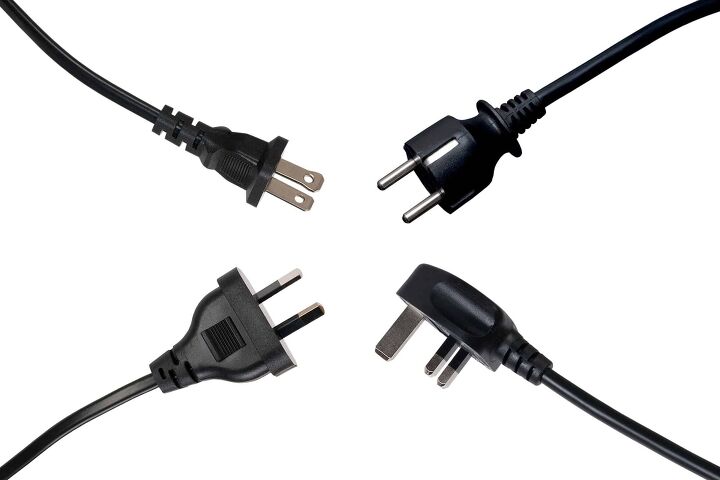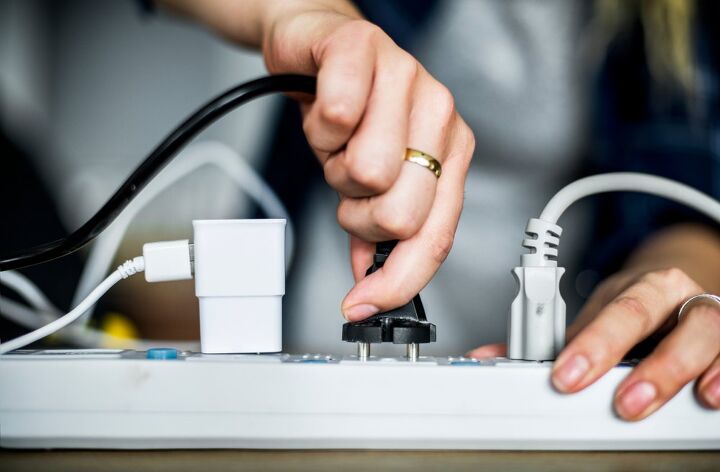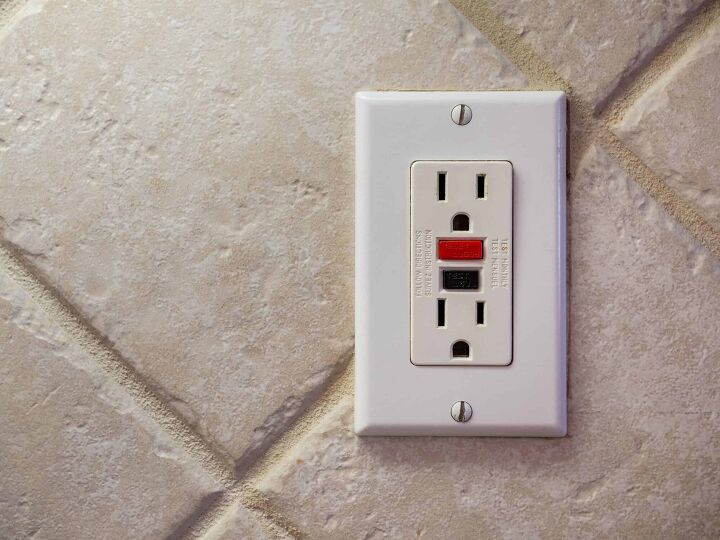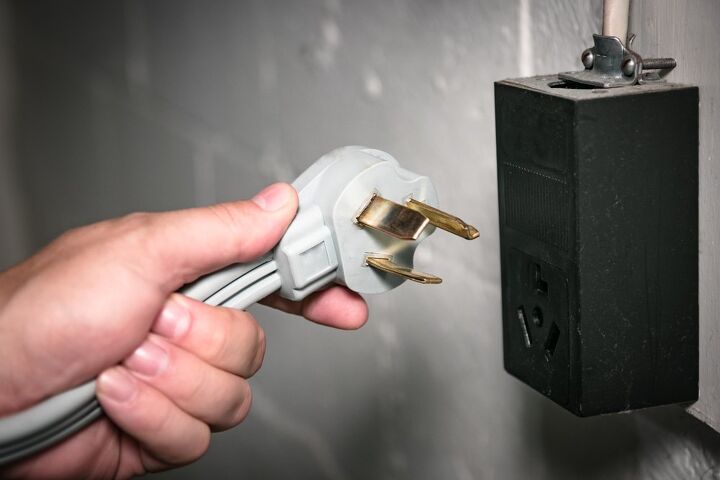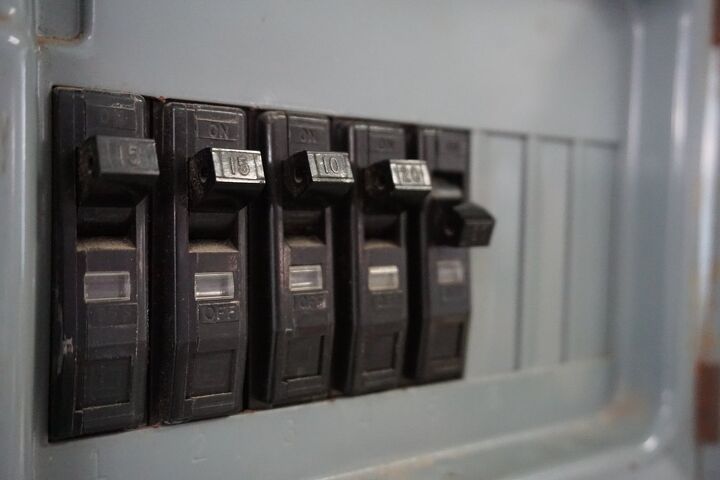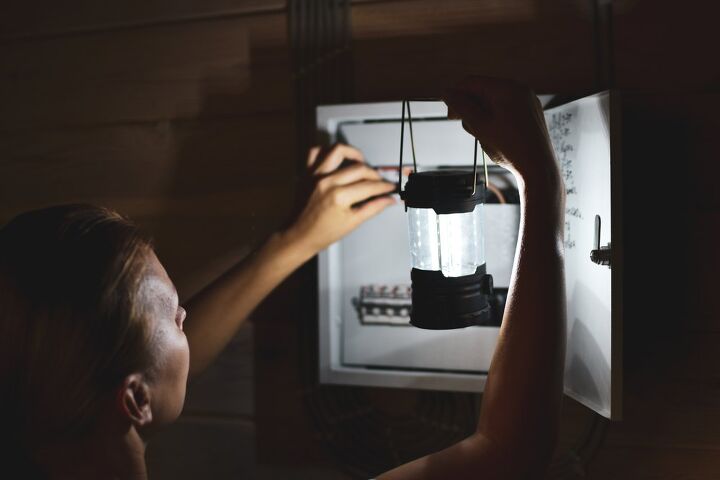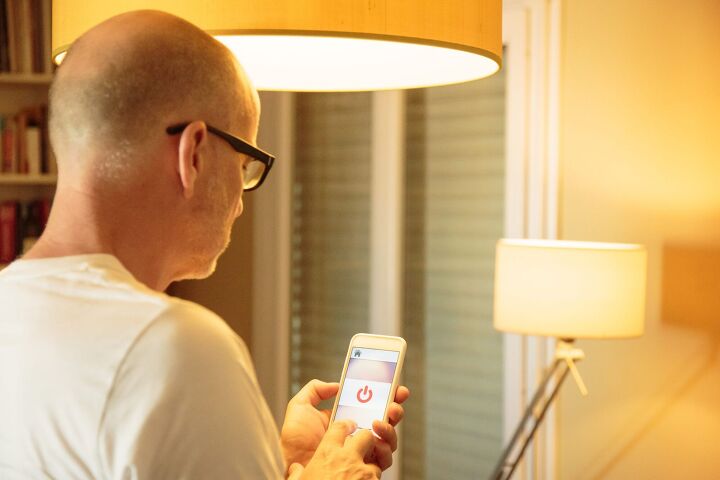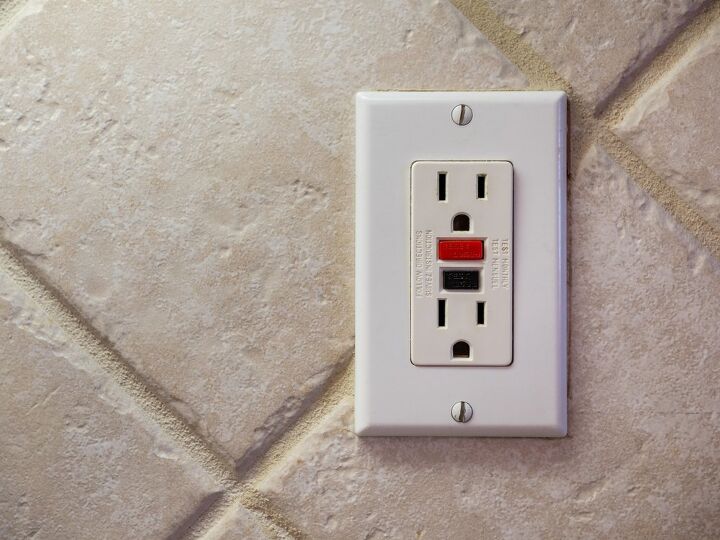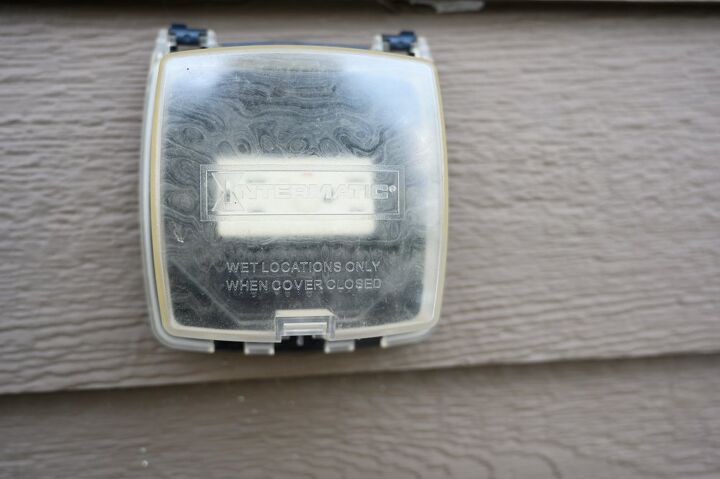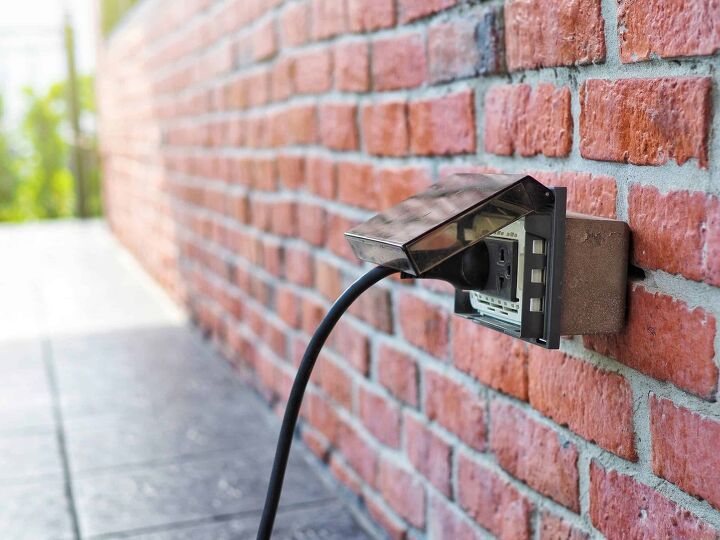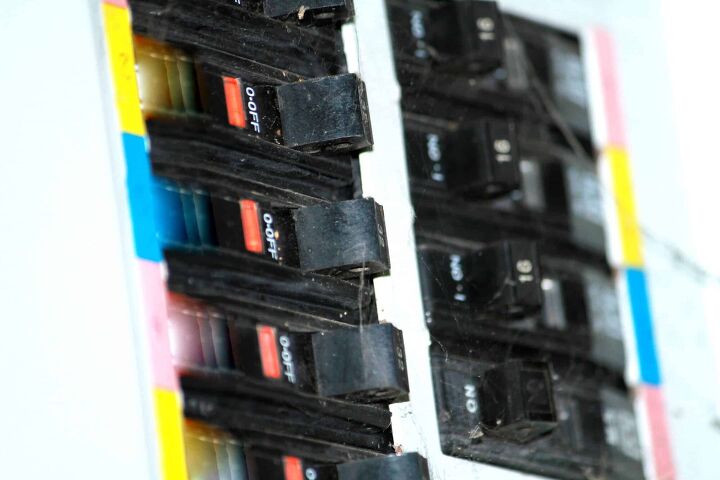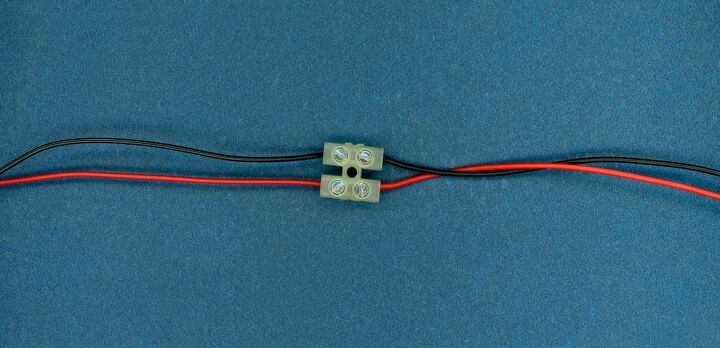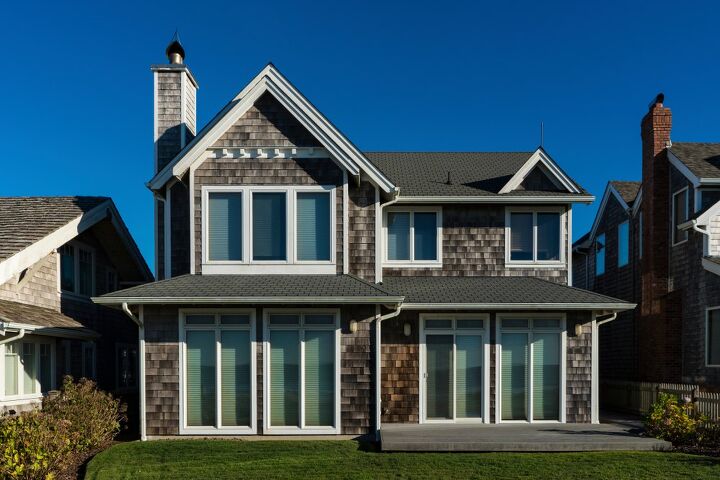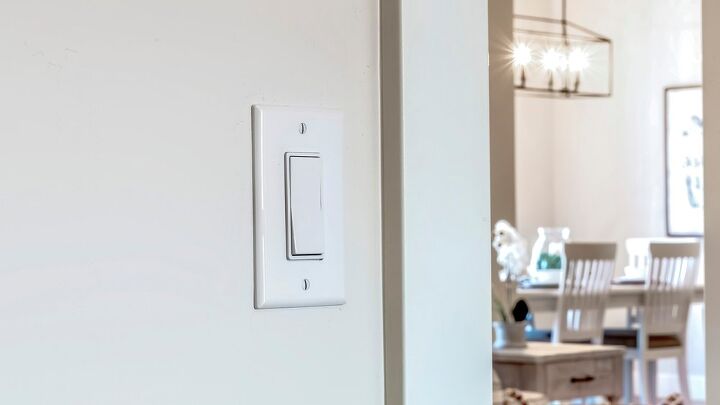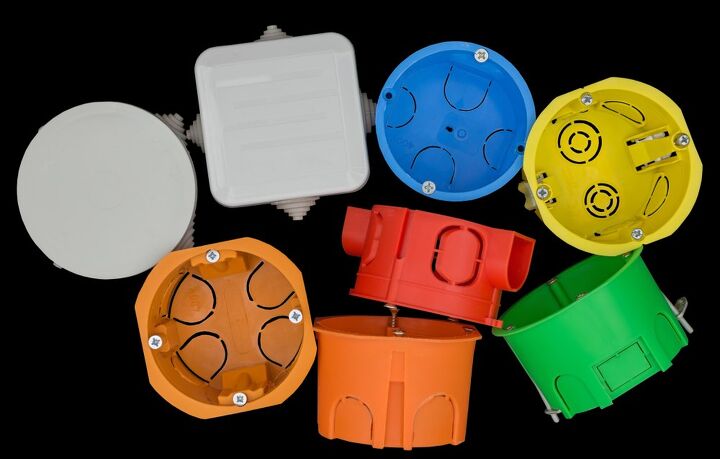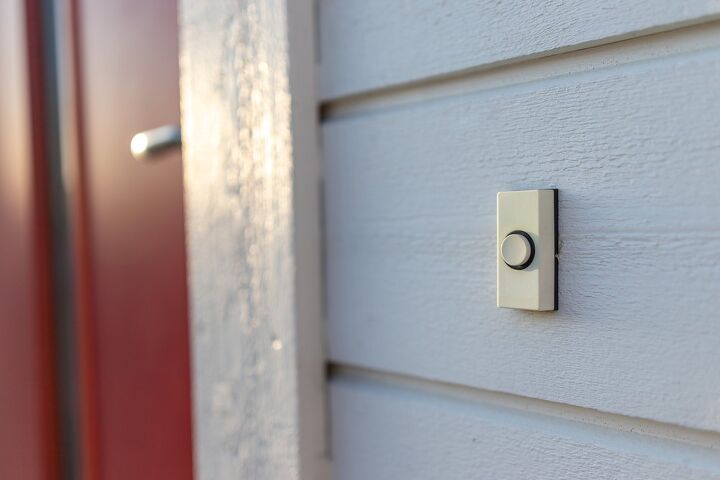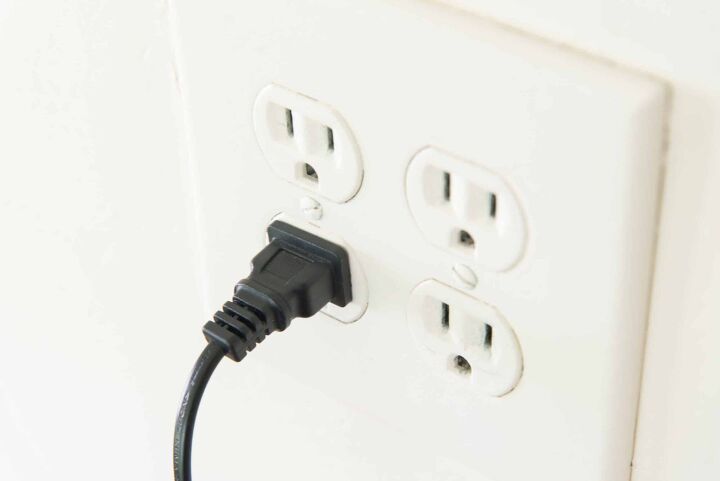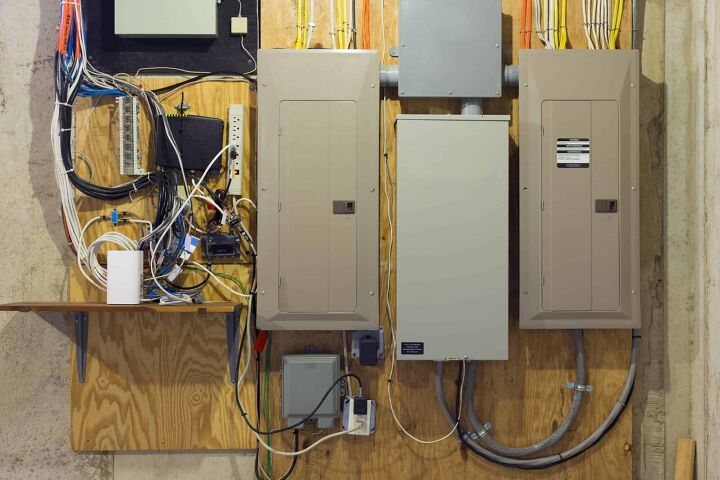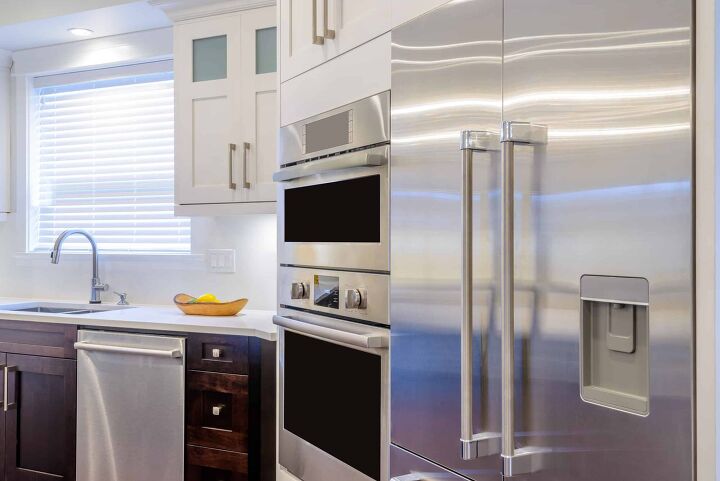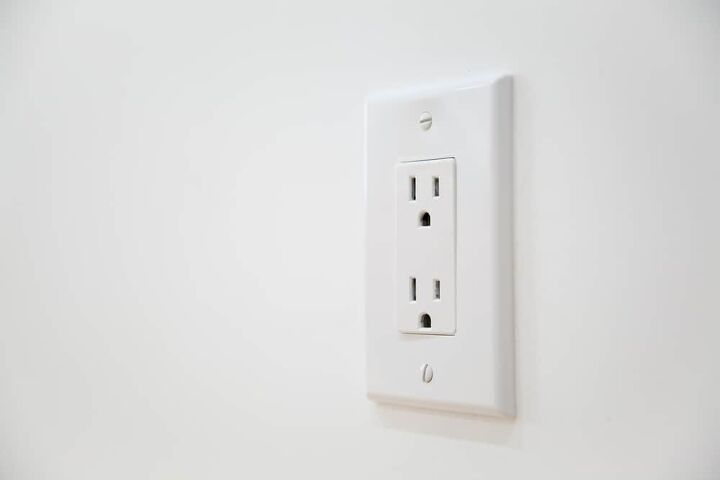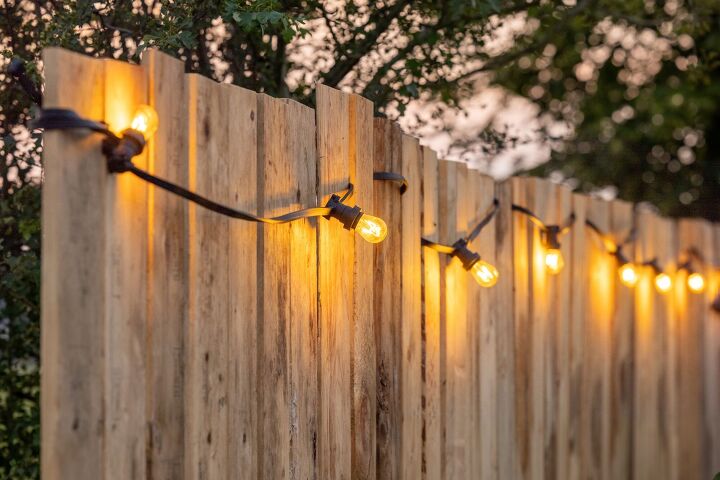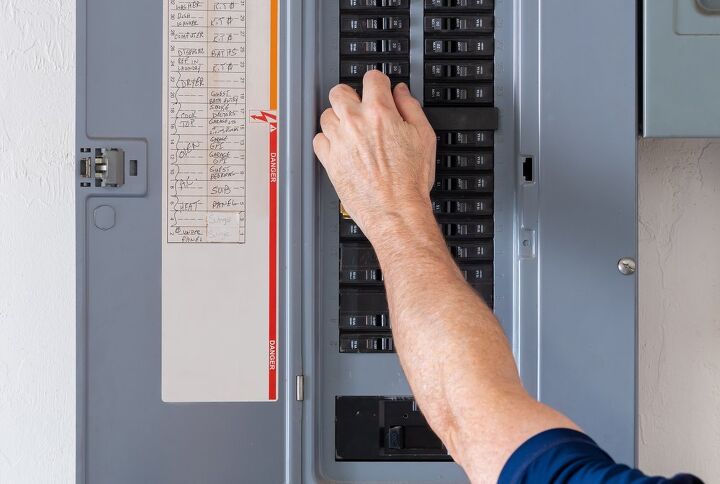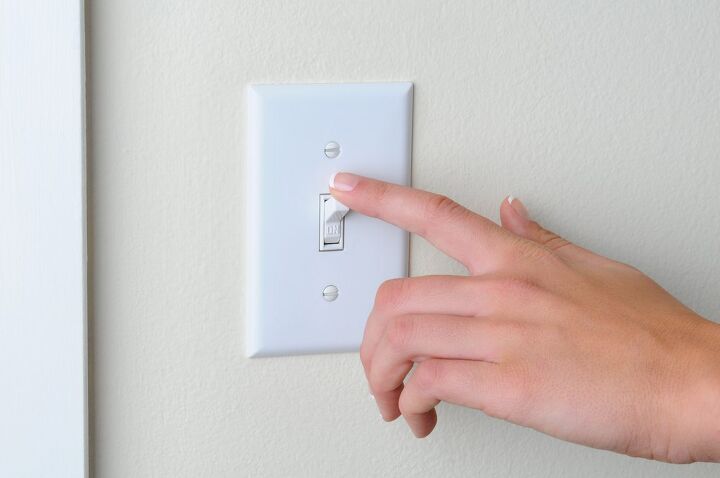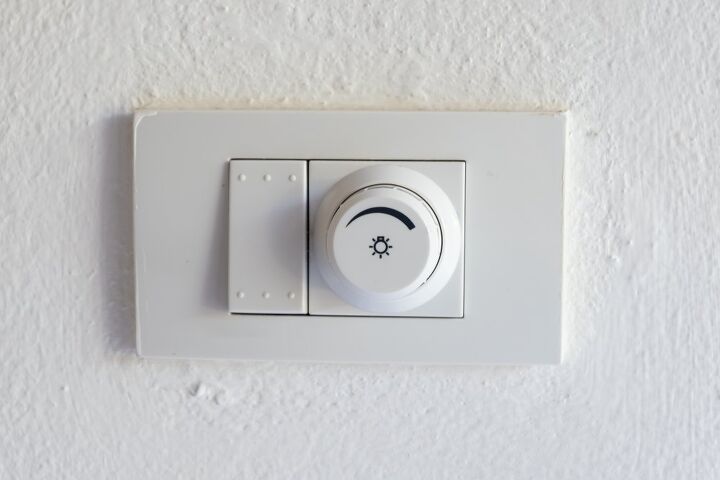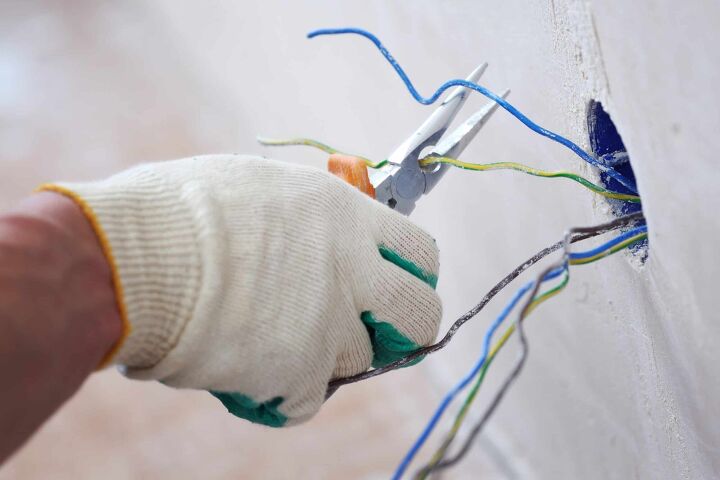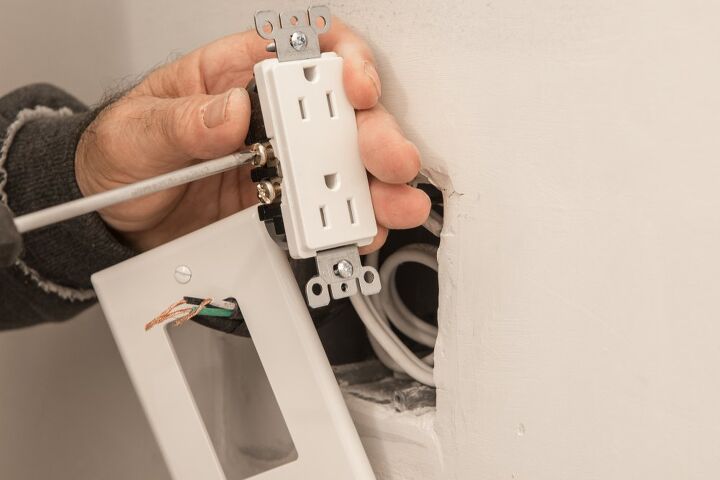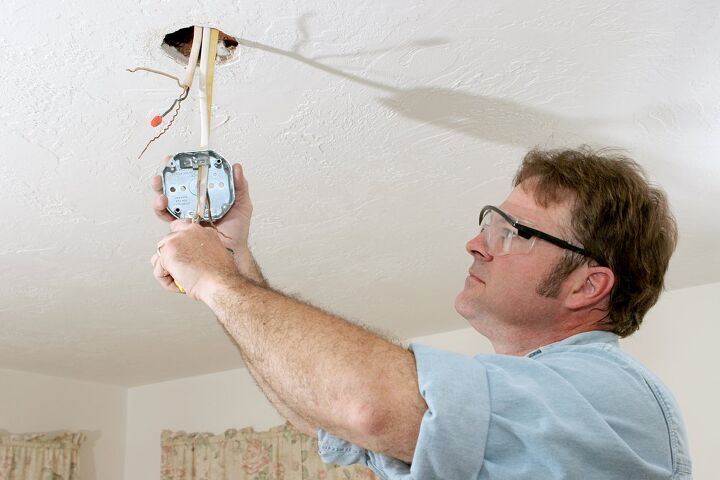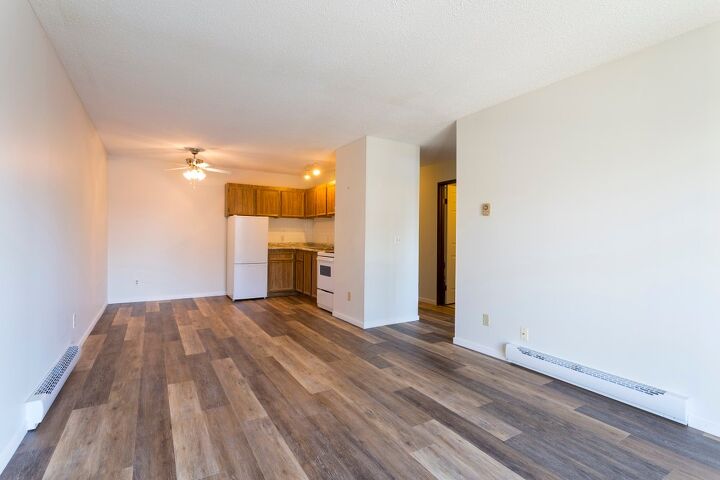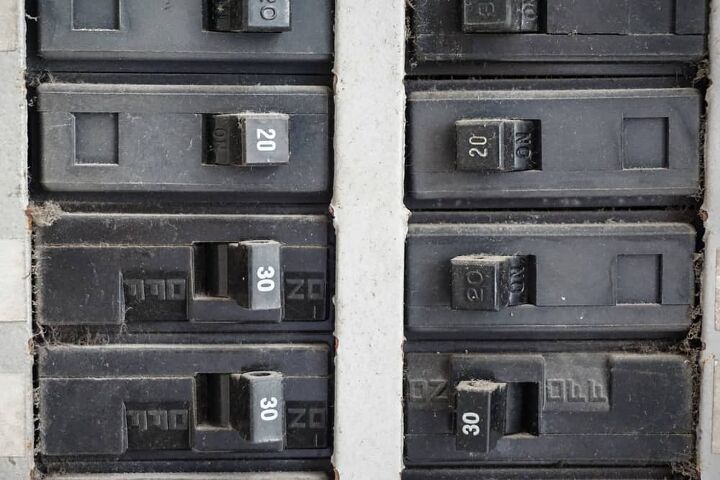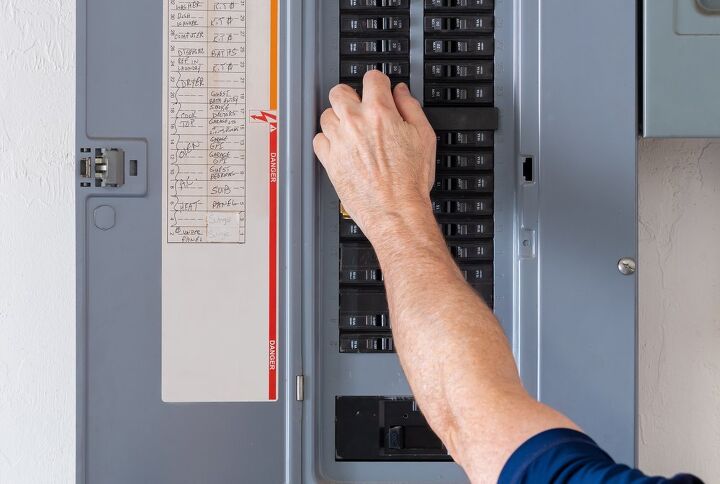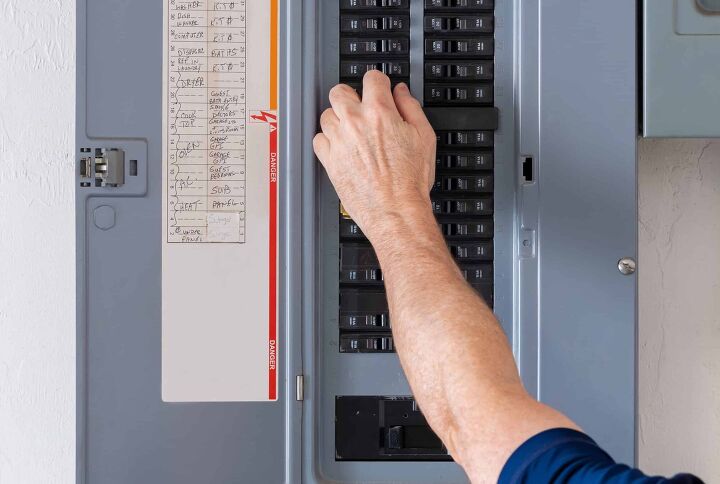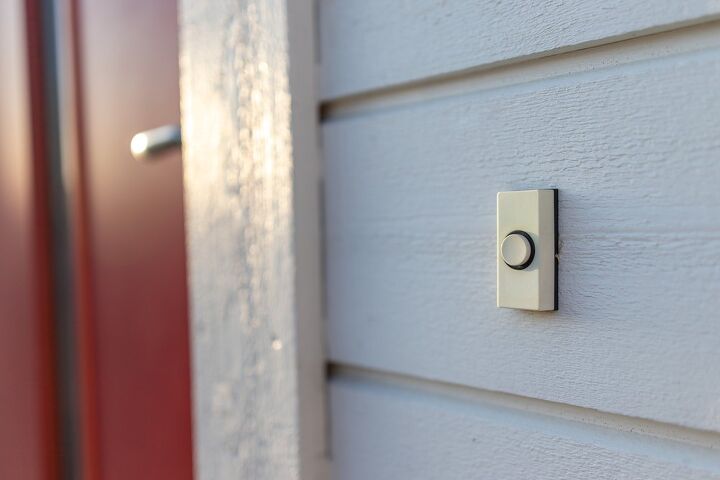Home Improvement Electrical
Are Ungrounded Outlets Safe? (No, Here's Why)
Are ungrounded outlets safe? No, definitely not. Ungrounded outlets are NOT safe. They’re significantly more dangerous than grounded outlets, and that’s why the National Electrical Code, in 1947,* began requiring certain areas of new constructions to have three-pronged, “grounded” outlets. Ungrounded outlets don’t protect against surges and significantly increase the risk of electrical fires.
Can You Put An Electrical Outlet Under A Sink?
You may find a situation where you need an electrical outlet under the sink cabinet in your kitchen. The most obvious reason would be the installation of garbage disposal in a sink that was not previously equipped. If a dishwasher is installed, you may also need an outlet under the sink to provide power to the dishwasher. From the standpoint of electrical codes, is it legal to put an electrical outlet under a sink?
Why Do Dimmer Switches Get Hot? (Find Out Now!)
Dimmer switches can often take people by surprise with the heat they emit, particularly if they aren’t used to using them in the house. It can be shocking, true. However, there is a difference between a warm dimmer switch and one that it hot enough to make you go “OW!” Are you one of the many people curious about the reasons why dimmer switches seem to turn up the heat.
Can You Put A Floodlight Bulb In A Regular Socket?
LED floodlights are some of the brightest lights on the market right now. A properly functioning LED floodlight will illuminate a significantly wide area, and this is why these lights have “flood” in their name. They essentially flood a space with light, as opposed to spotlights and downlights that usually only illuminate a small area.
Reverse Polarity Dangers: Ways To Test & Repair
When you get shocked by an appliance you thought worked correctly it can be startling or downright scary. This shock is reverse polarity, and it can be a very serious potential problem. It damages electronics and can even cause severe electric shock. This problem is fixable. There are even simple ways to test for it.
How to Fix an Open Neutral
In North America, 240 volts of electricity are supplied to a panel. The 240 volts are split between two 120-volt circuits.
What Is The Penalty For Cutting The Lock Off The Electric Meter?
If there’s anything I learned to hate, it’s meter readings. No, I don’t want to have to see how badly I’m clobbered with electricity use. I just don’t want to look at it.
Power Out In One Room? (Possible Causes & Fixes)
What do you do when the power goes out? It’s usually from a storm and involves the whole house, right? But what if there is no storm and power is out in just one room? That could be a sign of something completely different.
How Long Do Circuit Breakers Last? (And When to Replace Them)
Circuit breakers are one of, if not the most, essential parts of your home. Without an effective breaker, you would have no power for anything in the house. No appliances would work, you would be without heat or air, and you wouldn’t be able to have internet or entertainment.
Can You Feed Two Panels From One Meter? (Find Out Now!)
Are you wanting to know if it is possible to feed two panels from one meter? If so, then we are going to show you exactly what that looks like, and what your options are.
Do I Need A Permit To Install 240v Outlet? (Find Out Now!)
We often use 240-volt outlets in our homes to power large appliances like air conditioners and clothes dryers. If you’ve recently purchased a new appliance, you may find that you need a new 240-volt outlet to power it. Can you install it yourself, or is it necessary to get a permit and involve a professional?
Do I Need A Permit To Add A Subpanel?
When dealing with electricity, it is often a question of where you live as to whether you need a permit or not. Just as with this question about installing a subpanel, it will depend on your particular state and city. It can also be dependent on the building codes in your specific community or subdivision.
Light Switch Not Working After Changing? (We Have a Fix!)
Grab your wire connector, insulated pliers, a screwdriver, and a voltage tester—it’s time to see what’s wrong with that faulty light switch. And if you replaced your light switch recently, there’s a good chance that this has something to do with your light switch not working now. In this article, the common problems which manifest after a light switch replacement will be explained.
Is It Safe To Cover An Electrical Outlet? (Find Out Now!)
If you have recently relocated an outlet in your home, you may be left with an empty or dead outlet on the wall. While the dead outlet is certainly not harming anything, it can be unsightly if the outlet is no longer used. Hiding or covering the outlet can be tempting, especially to make your home look nicer without an ugly outlet on the wall.
Do I Need A Permit To Install Solar Panels?
Making the switch to solar is one of the biggest decisions in a homeowner’s life. Whether you want to save money on your electricity or get completely off the grid, there are options for you.
What Is A Tamper-Resistant Receptacle? (Find Out Now!)
When you first have kids or get a new pet, one of the things that you need to do is consider baby-proofing your home. There are a lot of hazards in and around your home that you may need to watch out for. For example, almost everything electronic can be hazardous to young kids. That’s why people are told to get tamper-resistant receptacles. But, what on earth is a tamper-resistant receptacle supposed to be?
How To Wire A Bathroom Exhaust Fan With Light And Heater
That combination light, heater, and fan in your bathroom has finally gotten so noisy that you can’t stand it anymore. Working with electrical circuits in your home is usually a job for a trained and licensed electrician. However, if you are replacing an existing unit, this project is well within most homeowner’s abilities.
How Many Receptacles Can Be On A 20 Amp Circuit?
Wiring branch circuits in your home can be complicated and a bit tricky. There are numerous codes and regulations to consider as you install the circuit breakers, wiring, receptacles and lighting fixtures. One issue requiring more than a little attention is the number of receptacles installed on a 20-amp branch circuit.
When To Use Conduit For Electrical Wiring (We Have The Answer!)
Electricity is everywhere in our lives. It powers our lights, our workplaces, and our world. So that means that we should all be very familiar with all things electricity, right? Wrong. Unfortunately, as useful and as necessary as electricity in our lives, most of us only have a novice understanding of electricity at best. And that means if you are working with electrical wiring, it is good to know some ground rules (pun intended), like when to use conduit for electrical wiring.
How To Find What A Light Switch Controls (Do This!)
Every house seems to have that one light switch that controls nothing. I have several in my house. It can be quite frustrating, but fear not! There are a few ways to hunt down what your mystery switch controls.
Why Are My Lights Flickering?
Flickering lights can be a scary sight to behold in both horror movies and real life. Your lights can flicker for a variety of reasons, but it’s hard to pinpoint the cause if you are inexperienced with electrical work. Many homeowners ask themselves: why are my lights flickering and how do I fix them?
Why Are Dimmer Switches So Expensive? (Find Out Now!)
Have you ever been in a room that was too bright, and you wished that you could tone down the brightness of the room’s light? If so, then you would need a dimmer switch to do that. Dimmer switches are a commodity that doesn’t come as standard procedure on most houses. They’re a specialty item that costs more than normal light switches.
Can You Use A Junction Box To Extend Wiring? (Find Out Now!)
There are many reasons for homeowners to want more accessible wiring. To do this, electrical work is needed, which often brings up the question “can you use a junction box to extend the wiring?”
Why Does My GFCI Trip When I Turn On The Light Switch?
Ground Fault Circuit Interrupters, or GFCIs, are a necessary safety measure in modern times. They can prevent harmful ground faults that can cause dangerous and expensive electrical problems. So, why does my GFCI trip when I turn on the light switch?
How To Rewire A European Plug To US (Step-by-Step Guide)
Have you ever traveled to another country and discovered that you couldn’t charge your phone with your charger? Or maybe you purchased an appliance from another country, and had no way to plug it in?
Can I Share My Electricity With My Neighbor?
It’s no secret that heating your home with electricity can be expensive. Because of that, it may have crossed your mind to share the burden with a neighbor instead of paying for everything on your own. That begs the question: is this even possible?
Does A Refrigerator Need To Be On A GFCI Circuit?
Your refrigerator can work with a standard electrical outlet as well as a GFCI. Many people believe that using a non-GFCI outlet is the best option for food storage. Thinking that this will prevent unnecessary tripping of the circuit breaker, causing food spoilage.
How To Check Continuity In A Long Wire (Quickly & Easily!)
Doing your own electrician work means that you will have to make sure that the wires you’re installing have continuity. This isn’t always easy to do. A non-continuous wire is usually the cause of a non-functioning circuit, a sudden power outage, or other problems in your grid. With short lines, it’s a cinch. Long lines? Not so much…
What Wire Size For 30 Amp 240 Volt Circuit?
Wiring your home is a tricky business. There are all sorts of factors to take into account when you start planning an electrical project that involves re-wiring. There are the safety considerations, the locations and the appliances themselves. You even need to take special care when choosing all your electrical wire to make sure it can withstand the electrical demands. So when you are choosing the wire for a 30 amp 240 volt circuit, what gauge should you select?
What Breakers Are Compatible With Challenger?
Challenger circuit breakers and service panels were popular during the 1980s and 1990s. Thousands of these Challenger electrical systems were installed in homes built during this period. Unfortunately, experience showed that certain Challenger circuit breakers overheated during normal use. If you have Challenger components in your home, it is critical to replace those breakers. Replacement breakers for Challenger products are available.
How Long Does It Take For The Power To Come Back On?
We don’t realize how much we depend on our electricity until there is a power outage. While electricity at one time was merely a useful convenience, the way our homes currently run, it is more of a necessity. A power outage can cause your food to spoil, leave you without a way to cook food, and it can also affect your heat or air-conditioning system. So when your power goes out, you’ll probably want to know, “How long does it take for the power to come back on?”
How Far Can You Run A 10-Gauge Wire?
You have your new shop or utility shed built and ready to go. Part of the plan is to run electrical service to the new structure from your home. However, the question of what size wire is required to get electricity to your new utility shed. What kinds of distance can you get if you use 10-gauge wire?
Do Smart Bulbs Use Electricity When Off?
Deciding whether or not to upgrade your lighting to smart lighting is a big decision. There is, of course, the initial investment. At $30 or $40 a bulb, switching your entire home over to smart bulbs is no small price to pay. But the benefits are numerous.
Can I Use 12/2 Wire For Lights? (Find Out Now!)
Are you planning to install new lights in your home and are unsure which type of wires should be used for lighting – 12-2 wires or 14-2 wires? You’re not alone. This is a question that often stumps many homeowners. Fortunately, we’re here to help answer: “Can I use 12/2 wire for lights?”
Does GFCI Protect Against Surges?
We are blessed with one of the most reliable and trouble-free electrical grids in the world. We often take the quality of the electrical service we receive for granted. However, we still are subject to problems with the power on occasion. One of these problems is power surges that can damage or destroy appliances and electronics. Many people wonder if their GFCI outlets protect their electronics from power surges.
Outdoor GFCI Outlet Keeps Tripping After Rain? (Fix It Now!)
Any outdoor electrical circuit should be protected by a GFCI breaker somewhere in the circuit. GFCI circuits protect you from an accidental shock be interrupting the flow of electricity when an electrical fault is detected. Sometimes, an outdoor GFCI outlet will trip after a rainstorm.
How High Should An Outdoor Electrical Outlet Be?
As outdoor electrical outlets are subjected to different weather patterns, installing them falls under strict building codes.
How To Increase Circuit Breaker Amps (Find Out Now!)
New appliances or new tools in your garage workshop may have you wondering about getting enough electrical service to those outlets. You know you need more amps but aren’t sure how to accomplish the upgrade. This situation leads to the question, how to increase circuit breaker amps?
Why Is Electrical Wire So Expensive? (Find Out Now!)
Whether you’re in the midst of a new construction project or rewiring a house, purchasing electrical wire is a must. The overall price of wires varies based on material and square footage, but there’s more to the story, too.
How To Wire A Light Fixture With Red, Black, And White Wires
Installing a new light fixture looks to be a simple operation. Two wires to connect and hang the new light fixture. Then you take down the old light fixture and find a mass of white, black, and red wires. There is an instant flash of panic as you try and figure out how to wire the new light fixture. Which of the black, white, and red wires do you use?
Cedar Shake Siding Vs. Vinyl: Which One Is Better?
If you take a look at most suburban homes, vinyl siding is the classic go-to. It’s everywhere! Though vinyl is going to be one of the most common siding types you may see, cedar shake is still fairly popular in upscale neighborhoods. They tend to get a good rep. If you’re ready to upgrade your home’s exterior, then you might be wondering what you should choose. Honestly, it’s a rough debate.
3-Way Switch Only Works When Both Switches Are On? (Fix It Now!)
Modern homes are filled with all sorts of electronic conveniences. Many homes come with switches that can turn on a light or device from multiple locations. These switches, called 3-way switches, are a very common convenience in many homes today. But What do you do when the switch is only working when both switches are turned on?
What Size Screws Are For An Electrical Box? (Find Out Now!)
Most new electrical boxes and configurations will come with the needed electrical screws in the package. If you are simply replacing an electrical box or have lost the original screws, you may need to purchase new screws to attach your electrical box safely. Determining the correct size and type of electrical screw can be difficult, though, especially with so many screw options available on the market.
What To Do If Your Doorbell Wires Are Not Labeled? (Do This!)
If your doorbell wires are not labeled, then you need to locate the chime and the low-voltage transformer. The chime could be in your living room, kitchen, or another open area. The transformer may be near your electrical panel, garage, or mechanical room.
Plug Gets Hot When Plugged In? (Possible Causes & Fixes)
An electrical outlet (also referred to as an electrical receptacle) is the place where you plug in all your appliances and electrical devices. When functioning correctly, these will stay at room temperature.
Power Goes Off, Then Comes Back On? (Here's Why)
It is understandable to be concerned when your power goes out and comes right back on. The power can go out without explanation and come right back on baffling any homeowner. So, what does it mean when the power goes out and comes back on, and should you be concerned?
Can A Dishwasher And Disposal Be On The Same Circuit?
A modern kitchen needs to be able to do a lot, sometimes without much space. There needs to be a way to store and prepare food, clean and store dishes, and dispose of trash.
How Many Outlets Can Be On A 20-Amp Circuit? (Find Out Now!)
Each home’s electrical panel has circuit breakers that act as a safety device for your home. They are each is designed in a way so as to cut power off when the current that passes through exceeds the designated rating.
How To Hang String Lights In Backyard Without Trees
So, you went to your friend’s house the other night for some backyard conversation and wine and fell in love with their yard. It was relaxing and comfortable, and those string lights in their trees were the perfect finishing touch. Now you want to hang string lights in your backyard, but you don’t have any trees.
How Big Of A Subpanel Can I Install Off A 100 Amp Service?
If you want to add more circuits to your home but don’t have room in your pane box, a subpanel makes expansion possible. It’s a common problem, especially in older houses, not to have enough spaces in your breaker box. If you choose to add a subpanel to your home, it’s important to know your limitations.
Why Your Light Switch Is Buzzing (Possible Causes & Fixes)
We are fortunate in the US to have one of the most stable and dependable electrical systems in the world. Most of us don’t give a thought to coming into a dark room and flipping an almost silent switch to bring light to the darkness. However, it can become disconcerting when a simple light switch starts to buzz.
Can You Put A Dimmable Bulb In A Non-Dimmable Socket?
As the US moves away from incandescent light bulbs in favor of LED lighting, there are some issues to consider. Many people are unfamiliar with the operating characteristics of LED light bulbs and have questions about replacing their incandescent bulbs. One often asked question is about using dimmable LED light bulbs in sockets not equipped with a dimmer switch.
How To Rewire a House Without Removing Drywall
Often times, when builder-owners plan to rewire a house, it is to protect the drywall from fire hazards. Things get slightly complicated, however, when builder-owners are faced with the thought that they may have to remove drywall. You don’t need to worry, because you can rewire a house without removing drywall, and it’s easier than it sounds.
Can You Turn A Light Switch Into An Outlet? (Find Out Now!)
If you have a light switch that you hardly use, it might be more beneficial to convert it into an outlet. But can that even be done? The answer is a resounding yes!
Is Romex Legal In Illinois?
So, you live in Illinois, and you are updating or remodeling your home. As you begin the demolition, you immediately find that all the electrical wiring inside the walls is metallic conduit.
Can I Wire A Baseboard Heater To An Electrical Outlet?
Adding baseboard heating units to an existing home is one way to increase the heating capabilities quickly and efficiently. Electric baseboard heaters are relatively easy to install and comparatively cost-effective. Providing the electrical power to baseboard heating can be challenging. Many homeowners wonder if they can wire a baseboard heater to an existing electrical outlet.
Square D Homeline Vs. Qo: Which Circuit Breaker Is Better?
Choosing a new breaker is an important decision. Your home’s electrical system is comprised of several fail-safes meant to keep both you and the breaker safe. Homeline and QO breakers are among the most popular and effective on the market, so how are they different?
How Many Watts Can A 200 Amp Panel Handle? (Find Out Now!)
It isn’t typically something we give much thought to until we plug in that appliance or flip the light switch, only to have everything in the room go black. Then, the question of how many watts can our amp panel handle becomes one of the first things we start thinking about. Funny, how being left in the dark can inspire us to seek answers. And in this case, those answers will be about the power that literally gives us the light we need to see.
Can A Bad Breaker Cause Low Voltage? (Find Out Now!)
Once, not too long ago, I saw something a little strange happen to a friend’s house. The lights started to dim. Getting any type of electrical equipment seemed to be a big issue. The entire house seemed to be suffering from low voltage, despite the electrical wires outside being totally intact. One of my friends suggested that a bad breaker could be the cause, but is this really a possibility?
Which Circuit Is The Doorbell Usually On?
Doorbells are a simple, albeit important fixture of modern homes that are typically reliable and low maintenance. Things can still go wrong with a doorbell despite the simplicity, so it’s important to know basic electrical information about your doorbell. So, which circuit is the doorbell usually on?



